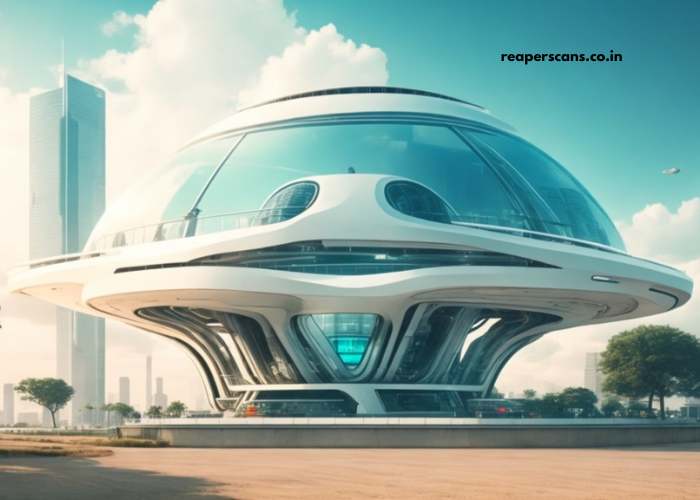The world of technology is advancing at a pace like never before. From artificial intelligence (AI) to quantum computing, innovations are reshaping industries, economies, and everyday life. As we move into 2025 and beyond, there are numerous exciting developments on the horizon that promise to revolutionize the way we live, work, and interact with the world around us. This article explores the most important trends and technologies that will define the future in the coming years.
Technological Advancements Shaping 2025
As we look forward to the future, several key technologies are expected to make profound impacts. Here are some of the areas that are likely to experience the most significant growth:
1. Artificial Intelligence (AI) and Machine Learning
Artificial Intelligence has already begun to change the way businesses operate and how people engage with technology. However, in 2025, AI is expected to take even greater strides. The advancements in deep learning and neural networks will enable AI systems to solve complex problems, make real-time decisions, and even understand human emotions and context with greater accuracy.
AI in Healthcare
One of the areas where AI will see immense growth is in healthcare. AI-powered diagnostic tools are predicted to outperform humans in detecting diseases like cancer, heart disease, and neurological disorders. AI algorithms will also be used to personalize treatment plans, ensuring that patients receive care that is tailored specifically to their needs.
AI in Automation
AI and machine learning will continue to drive automation in industries such as manufacturing, logistics, and customer service. By 2025, it is expected that more businesses will adopt robotic process automation (RPA) to reduce costs and improve efficiency. Smart robots and automated systems will handle repetitive tasks, freeing up human workers to focus on more strategic activities.
2. Quantum Computing: A New Era of Processing Power
Quantum computing is poised to revolutionize industries by providing a computing power that far exceeds current classical systems. By harnessing the principles of quantum mechanics, quantum computers will be able to perform complex calculations much faster than today’s supercomputers.
Applications of Quantum Computing
In 2025, quantum computing could unlock breakthroughs in various fields, including drug discovery, material science, cryptography, and climate modeling. For instance, quantum computers could simulate molecular structures and predict how new drugs will interact with the body, dramatically speeding up the drug development process.
Challenges Ahead
While quantum computing holds enormous potential, there are still challenges to overcome. Quantum systems are highly sensitive to environmental changes, making them difficult to stabilize and scale. Researchers are working on overcoming these hurdles, and by 2025, we may see the first commercially viable quantum computers emerge.
3. 5G and Beyond: The Future of Connectivity
The rollout of 5G networks is expected to have a profound impact on how we connect and communicate. By 2025, 5G will likely be ubiquitous, offering faster speeds, lower latency, and higher connectivity for a vast array of devices. The transition to 5G is expected to be a game-changer, enabling new technologies and industries to emerge.
Internet of Things (IoT)
One of the major beneficiaries of 5G will be the Internet of Things (IoT). With the increased speed and connectivity provided by 5G, IoT devices will be able to communicate more efficiently and in real-time. This will enable a new wave of smart homes, smart cities, and connected factories, where everything from appliances to traffic systems is interconnected.
Autonomous Vehicles
Another area where 5G will make a significant impact is in the development of autonomous vehicles. The low latency and high-speed data transmission enabled by 5G will allow self-driving cars to communicate with each other and with traffic management systems in real-time. This will make autonomous driving safer, more efficient, and more reliable.
4. Virtual Reality (VR) and Augmented Reality (AR)
Virtual Reality and Augmented Reality technologies are expected to evolve significantly in the coming years. While VR has primarily been used for gaming and entertainment, in 2025, it is expected to find wider applications in fields such as education, healthcare, and business.
VR in Education
By 2025, VR could become a mainstream tool in education. Imagine students attending immersive, interactive lessons that simulate real-world scenarios, from virtual history tours to scientific experiments. VR can provide hands-on learning experiences that are not possible with traditional textbooks.
AR in Retail and Marketing
Augmented Reality is also set to transform industries like retail and marketing. AR enables consumers to interact with products in a more immersive way before making a purchase. For example, virtual try-on features in fashion retail or interior design apps that allow customers to see how furniture will look in their homes could become the norm in 2025.
5. Biotechnology and Genetic Engineering
Advances in biotechnology and genetic engineering will continue to make headlines in the coming years. With CRISPR technology enabling precise gene editing, scientists will be able to treat genetic disorders, improve crop yields, and potentially even extend human lifespan.
Gene Editing for Disease Prevention
In 2025, we could see a revolution in personalized medicine, with gene therapies and treatments tailored to individual genetic profiles. The ability to edit genes could also lead to the eradication of genetic disorders such as cystic fibrosis, sickle cell anemia, and muscular dystrophy.
Agricultural Innovations
Biotechnology will also play a key role in addressing food security. Genetically modified crops that are resistant to disease and pests, or that thrive in challenging environments, will become increasingly common. These advancements could help combat global hunger and make food production more sustainable.
The Role of Sustainability in Future Technologies
As technology advances, there will be an increasing focus on creating solutions that are environmentally sustainable. In the face of climate change and resource depletion, the future of technology will need to address these issues.
Green Tech and Renewable Energy
The transition to renewable energy sources will be one of the most important technological trends in the coming years. Solar power, wind energy, and other green technologies will become more efficient and affordable, making them the primary sources of energy for the world by 2025. Advances in energy storage technologies, such as solid-state batteries, will allow for more reliable and widespread use of renewable energy.
Sustainable Manufacturing
Technology will also play a significant role in making manufacturing processes more sustainable. Advanced robotics, AI, and IoT will be used to optimize supply chains, reduce waste, and improve resource efficiency. For example, smart factories that use AI to predict demand and adjust production processes in real-time could dramatically reduce overproduction and energy consumption.
Carbon Capture and Climate Engineering
Another exciting area of technological development is carbon capture and climate engineering. Technologies that can capture carbon dioxide from the atmosphere and store it underground or convert it into useful products could play a vital role in reducing the effects of climate change. In 2025, we could see the first large-scale carbon capture facilities become operational, helping mitigate the environmental impact of industrial activities.
The Impact of Future Technologies on Employment and Society
As technological advancements continue to reshape the world, the way we work and live will be altered in profound ways. Automation, AI, and robotics will undoubtedly change the job market, creating new opportunities while rendering certain roles obsolete.
The Rise of Remote Work and Digital Nomadism
The COVID-19 pandemic accelerated the trend of remote work, and by 2025, this will likely become the norm in many industries. Advances in virtual collaboration tools, cloud computing, and AI-powered productivity assistants will make it easier for people to work from anywhere in the world. As a result, we may see a rise in digital nomadism, with people choosing to work from different locations, traveling, and experiencing new cultures while maintaining their careers.
New Jobs in Tech
While automation and AI may displace some jobs, they will also create new ones. By 2025, there will be a growing demand for skilled workers in fields such as AI development, cybersecurity, data science, and digital marketing. Furthermore, industries such as healthcare, education, and creative arts will be transformed by technology, creating opportunities for professionals who can leverage new tools and technologies.
Ethical and Social Implications
With these advancements come significant ethical and social challenges. Issues such as data privacy, the potential for AI bias, and the socioeconomic impacts of automation will need to be addressed. Governments, businesses, and individuals will need to work together to ensure that technology is used responsibly and in ways that benefit society as a whole.
Conclusion: Embracing the Future
The future of technology is full of exciting possibilities. As we move into 2025 and beyond, technologies such as AI, quantum computing, 5G, VR/AR, and biotechnology will revolutionize industries, improve our quality of life, and address some of the world’s most pressing challenges. However, these advancements must be managed thoughtfully and ethically to ensure that they benefit everyone. By staying informed and adaptable, we can embrace the future of technology and harness its potential to create a better world for generations to come





